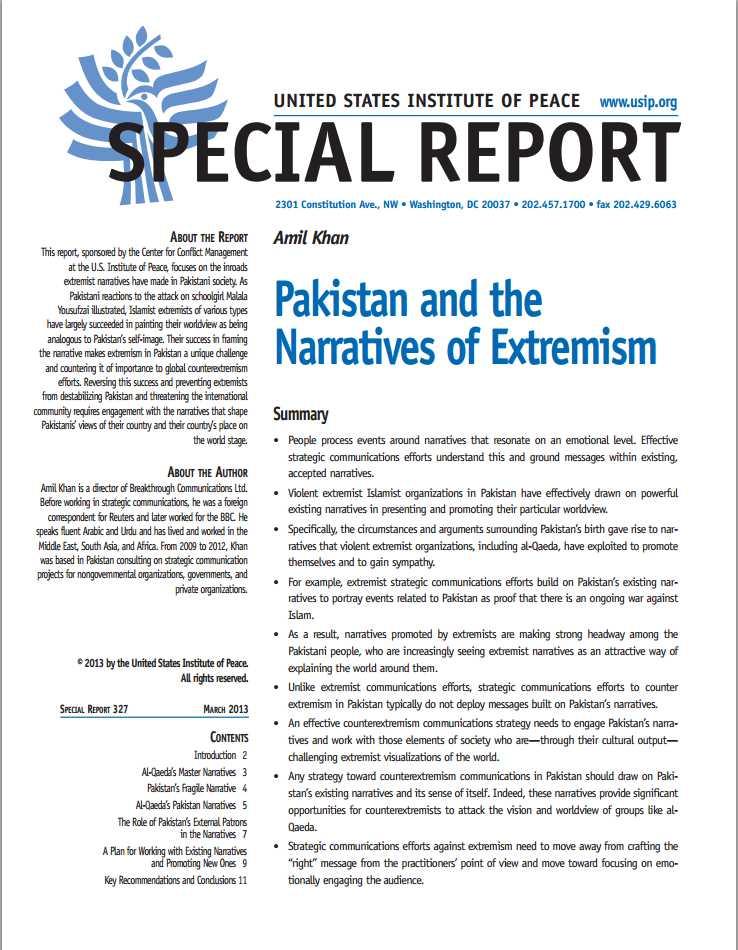Violent extremist organizations in Pakistan have effectively drawn on existing narratives about Pakistan’s history and identity in promoting their own worldviews. An effective communications strategy to counter extremism likewise needs to engage existing narratives, as well as engaging youth and others who are already challenging extremist views.
Summary
- People process events around narratives that resonate on an emotional level. Effective strategic communications efforts understand this and ground messages within existing, accepted narratives.
- Violent extremist Islamist organizations in Pakistan have effectively drawn on powerful existing narratives in presenting and promoting their particular worldview.
- Specifically, the circumstances and arguments surrounding Pakistan’s birth gave rise to narratives that violent extremist organizations, including al-Qaeda, have exploited to promote themselves and to gain sympathy.
- For example, extremist strategic communications efforts build on Pakistan’s existing narratives to portray events related to Pakistan as proof that there is an ongoing war against Islam.
- As a result, narratives promoted by extremists are making strong headway among the Pakistani people, who are increasingly seeing extremist narratives as an attractive way of explaining the world around them.
- Unlike extremist communications efforts, strategic communications efforts to counter extremism in Pakistan typically do not deploy messages built on Pakistan’s narratives.
- An effective counterextremism communications strategy needs to engage Pakistan’s narratives and work with those elements of society who are—through their cultural output— challenging extremist visualizations of the world.
- Any strategy toward counterextremism communications in Pakistan should draw on Pakistan’s existing narratives and its sense of itself. Indeed, these narratives provide significant opportunities for counterextremists to attack the vision and worldview of groups like al- Qaeda.
- Strategic communications efforts against extremism need to move away from crafting the “right” message from the practitioners’ point of view and move toward focusing on emotionally engaging the audience.
- All such efforts should be long-term and Pakistani-led, with the capacity to involve state and private entities.
About the Author
Amil Khan is a director of Breakthrough Communications Ltd. Before working in strategic communications, he was a foreign correspondent for Reuters and later worked for the BBC. He speaks fluent Arabic and Urdu and has lived and worked in the Middle East, South Asia, and Africa. From 2009 to 2012, Khan was based in Pakistan consulting on strategic communication projects for nongovernmental organizations, governments, and private organizations.
